We are living at a time where people are more selfish and more self-absorbed than any other time in the past. There are opportunists lurking everywhere, trying to use people, trying to get whatever it takes to move ahead! Really the remedy and cure to this is altruism. Altruism is doing an act of kindness to possibly a complete stranger and expecting nothing in return. You will be amazed what this kind of act can have profound impact. It can have a profound impact on yourself and on the world around us.
Now as far as making the world a better place, I want you to try doing random acts of kindness. And you can come up with anything. Whether it’s helping a person who has a small child, and you help them maybe, and I just experienced this actually on a flight. There was a mother who was very restless with the baby who was crying, crying, crying and she couldn’t get him to stop. So just by providing the assistance, being there trying to make the baby better, that is an act of altruism. Or you can see someone who is maybe, their meter, their parking meter has run out, and you just simply put some money in there, so they don’t get a ticket. Or you can help someone carry something. And it could be all these small acts or it could be very large, grand acts that could help a person. Martin Luther King, Jr. states that every man must decide whether he will walk in the light of creative altruism or in the darkness of destructive selfishness! So we each have a choice that, we can either choose to be a giving, loving altruistic person or we choose to be very selfish, self-absorbed and into just feeding our own ego and our own needs.
Now, those individuals who choose to live altruistically, they will not only be helpful to the community, but they will feel peace within. And also the people will end up loving a person like this as well. So you’ll always be surrounded by very positive energy and positive people. And it reminds me of the hadith of the Prophet (Sallallahu ‘Alaihi Wasallam) that says when Allah loves someone, he tells the Jibreel Alaihis Salaam to love the person and he also tells the angels to love them. And Allah puts the love into the hearts of the people for this person. So, this is one of the benefits of being altruistic. It is a way of bringing joy to each person we see. So, if you come across any person, whether it is in the grocery store, or at the school, or your work, and you just try to think to yourself, how can I bring joy to this person? And sometimes it is by a compliment, a sincere compliment. Because there’s nothing worse than giving just flattery of where you don’t really mean it. So you give a compliment, maybe you can help them, listen to them and somehow share or spread some joy.
As you get up in the morning, look at each person you come across. First of all, your spouse, try to say something or do something that will bring joy into their life. Your children, when you’re interacting with them, try to fill them with happiness and confidence, and send them off to school with a positive feeling. And do that throughout the day, with each person that you come in contact with, think to yourself, how can I bring joy to this person? And usually what happens is that, people do things for others as either a way to get things, or as a way of paying back a favour. Now there’s a new concept, which is paying it forward. So instead of paying back someone, you pay it forward. And there is actually a movie called Paying It Forward, which had a really simple, yet beautiful message. And that, if each person pays it forward, does an act of kindness to a complete stranger, and tells that person to do it to three other people. And this is a way that it creates a ripple effect, that you are doing it to someone you are not expecting anything in return, and it’s a way of actually training your soul. When you train your soul to be kind to people, it will get you to step outside of yourself, you are not so consumed. Because a lot of times, people get so involved in their own problems, they are just thinking, and their family, and their work and all the things that are stressing them out. That if you train yourself, and this is an act of mindfulness, where you are in the present and you start thinking about all that is going on the around you and outside of you, and looking, and anticipating the needs of others. And you start seeing that, maybe this person needs a little help! And you start providing your assistance. This trains yourself, trains your soul to be less egotistic. Because the ego has a way of just growing bigger and bigger, and if we don’t tame the ego, then it will go out of control. So this is a way we tame our ego, we try to become more helpful to others and it has an amazing effect on the society and on yourself.
So with each act that you do, if you think to yourself that you are doing this and you are not expecting anything in return. But you do it with the conviction, that good bequeaths* good. You are doing fair*, and you know that fair will come back to you, but not necessarily from the person. Allah says in Surat Az-Zalzalah, Bismillah Ar Rahman Al Rahim, Faman yaAAmal mithqala tharratinkhayran yarah. Waman yaAAmal mithqala tharratinsharran yarah. That if a person does an atom’s weight of good, that he will see it. He will see it and he will be rewarded for it. And if a person does an atom’s weight of evil, he will also see it and see the consequence of it.
When you do an act with that conviction, that everything that you do is seen and that you will be held accountable for, then you will be rewarded for it. You will do it with such eagerness, and such excitement, because you know that as you do good, good will bequeath good. When you do a kind act, it will have a ripple effect. A ripple effect is, when you take a stone and you throw it into a still lake, and you see the circles, this ripple effect. And so your kind act could affect so many people, and it will motivate them to do the same. Allah says in Surat Al-Baqarah, Ayat number 261, “Bismillah Ar Rahman Al Rahim, Mathalu allatheena yunfiqoona amwalahumfee sabeeli Allahi kamathali habbatin anbatatsabAAa sanabila fee kulli sunbulatin mi-atu habbatinwallahu yudaAAifu liman yashao wallahuwasiAAun AAaleem.” And this is saying that the likeness of those who spend for Allah’s sake is as the likeness of a grain of corn. It grows seven ears; every ear has a hundred grains. And Allah multiplies for who he wills, and Allah is sufficient for his creatures needs or knowing. Ok, so this is saying that, just like one kernel of corn, when you plant it, it can give you up to seven hundred seeds. Then the same way, you can do one kind act, you can help a person, you can give a kind word to them, do something and that can be multiplied and get you seven-hundred degrees of adjure*. So this is a very motivating thing for us to do because we realize that Allah is so incredibly merciful and that we do a simple act and it could count up to seven-hundred times for us.
I’ve spoken before about the power of asking the right questions. So the question you can ask is, how can I make my world a better place? So your world could be your school, your children’s school, the workplace, maybe your mosque, maybe the neighborhood. So ask yourself, how can you make it better. Let us take your children’s school. You look at it and see, what does it need? Does it need more funding? Do you need, maybe to breathe life into the PTA? Do you need to maybe help and volunteer, look out and see how you can improve it. Or you could look at our mosque for instance. Maybe it needs some renovation, maybe you need to set up a way of cleaning it, or setting up new events, new lectures, make it something that its more exciting for people to attend. And so in each area of your life, you can look and see, how can you make it better! And the questions that you ask will empower you to actually make a difference. And instead of asking, why isn’t my world a better place? , you ask, how can I make it a better place? And it reminds me of the quote of John F. Kennedy that says, Ask not what your country can do for you? Ask what can I do for my country? And I think, when we think about it, it is about re-framing the situation, and thinking about how can you impact your society. And it actually puts responsibility on the person. Because if we sit here and we talk about, why is society like this? Why is the school not good? Why is the mystic* falling apart? When we ask this, we are putting the responsibility on someone else, and it is the easy thing. It is what usually people do. They sit back; they complain and put the responsibility on others. Why aren’t things better? But if we start asking ourselves, what can I do as an individual to make things better, then you are suddenly taking on, you are taking charge, being proactive and actually doing something about it. Gandhi says, “You must be the change that you want to see in the world!” So when you look at your world and you see that, you want to see more honesty, be more honest. You want it to cleaner, you yourself be cleaner.
In summary, acts of altruism is helping or doing something for another person without wanting anything in return. So join me after the break, when I would share with you more benefits of altruism.
Welcome back, we were talking about taking responsibility to make your world a better place. To ask what you can do and the benefits of altruism. I mentioned that it does make your environment better, and now the second benefit is the psychological well-being that you get.
First of all, you will feel more peaceful. I want you to think back to the last time you did, like an act of charity, or an act of altruism. I can think back to when I went and visited the students of knowledge, here in Asyut*. And they are students from all over the world, coming here, having very small means. And when I help them, there was such a feeling of satisfaction, of peace and tranquility that I don’t think anything could compare to that feeling. So it is that feeling of peace, and it makes you less depressed. So I have clients that are diagnosed with severe depression. They are even suicidal, people who have attempted to kill themselves. One of the things I tell them as a remedy to this is to go out and help individuals who are in need. And when they do this, they see that immediately, they start feeling good. Because it is a way of stepping out of themselves and helping and feeling that they can actually make a difference. Allah says in Surat Al-Ĥashr, Ayat number 9, “Bismillah Ar Rahman Al Rahim, thiroona AAala anfusihim walaw kana bihim khasasatun.” And they give others preference over themselves, even though they themselves were in need. And this is when you are in some sort of trial or tribulation. Maybe you have an illness, and yet you go out and help people that this is so admirable. And there have been some studies done on patients who have dialysis or they are transplant patients, and they start helping other transplant patients, or other dialysis patients. And you can imagine the impact that this has. So imagine, these are individuals in the hospitals and they are suffering, they have ailments, they are in need, and yet they prefer others over themselves. And they start helping others. And you know what happens? It’s that they themselves are the ones who receive the benefits. Because they start feeling better, they experience less depression and it has such a positive impact on them. I’ve had clients who are severely depressed because they had a family member diagnosed with either cancer or some kind of major illness. And one of the things that I suggested is for them to get involved in the cancer hospital and help other patients. And you cannot imagine that this person who used to feel so down and so depressed started getting a new purpose in life. They felt, that they can have an impact. They started feeling that they are much better off, than a lot of the other patients. So it has a very positive psychological benefit. Study researcher Carolyn Schwartz, from University of Massachusetts Medical School says that, “The act of giving to someone has mental health benefits, because the very nature of focusing outside of the self, counters the self-focus nature of anxiety or depression”. So when someone is anxious or depressed, they are usually focusing within themselves, and they are self-absorbed. So when you start doing acts of altruism, and you are starting to help others, it makes you step outside of yourself. So, it really helps with this feeling of depression or anxiety.
Now the third benefit is stress relief. We all have so much stress. When you’re stressed, you may feel that you are not up to giving to someone, or helping, or doing acts of altruism. But in reality, giving can activate a part of your brain that is associated with positive feeling. So you do it, and you start feeling good. And what it does is that it decreases the intensity and awareness of pain. So if you’re living with pain, I’ve worked actually in the hospital with individuals who have chronic pain and this actually is a form of distraction. When you do acts of kindness, and you are out helping others, it will take attention away from yourself and your pain and you start focusing on others. You’ll also have more positive and hopeful attitude. And this is vital to maintaining good health. A person, who is optimistic, and is hopeful, will definitely have better health. And it reduces any kind of hostility or negativity. So if you’re feeling negative, or you’re feeling down, and you start doing these acts, you find that it reduces the negativity. We also experience a helpers’ high, and this is like a feeling of euphoria. You feel so good, and it is followed by a long period of calm. And it usually comes about when you’re actually interacting with the people. So, it is never enough to just donate, and you should try to go see the people, be in contact with them, because in that exchange is when you get all of that positive feeling. And it actually helps the body to release natural painkillers, the endorphins, and that is actually what causes the helpers’ high.
Another benefit of altruism is that it has a healing effect. It is a survival strategy for people who have had tragic experiences. So for instance, if there are parents who have lost their children, and they were never able to find them. What they do, they will go out on a campaign and they will start sharing their experience to others. Or sometimes, there are rape victims, people who have been raped, and they go and they try to share their story to somehow shed light or share their wisdom, or share their experience in a way, to kind of make sense of it all. And this is actually a way to survive the tragedy that they have experienced. So you find that they do this, it’s a way of not only helping the society, but it also helps them because it gives meaning to what they have experienced.
In summary, the act of altruism can have positive impact on your community, and also on yourself. It has psychological benefits, it helps you to reduce your stress and it even has a healing effect. If you’ve gone through something very difficult, very tragic, and by helping others, it will help you. And if you join me next week, I will continue on the benefits of altruism.
As-salamu alaykum! And thank you for joining me today. Last time I was talking to you about altruism. The simple acts of doing something for a complete stranger and expecting nothing in return. And then I talked about the benefits, the psychological benefits, and the healing effect. The fact that it reduces your stress, and I am going to continue with some of the other benefits.
One, it’s that, helps you to keep things into perspective. So for instance, when you go out and you help people who are in need, it makes you look at your life in a different way because comparing has a strong impact on your outlook. So who you compare yourself to directly affects your life satisfaction. So sometimes, you have people who are always comparing their selves to people who are, maybe wealthier, or have more going on for them, maybe higher education, whatever it is. And they start feeling very inadequate, ok? And this has a negative impact on individuals. But if you start comparing yourself to people who are lot less fortunate and you go out and you see how people are living. And I actually take my children with me, and they start viewing and seeing how other people live their lives, and I think it sheds a lot of light and it ingrains a lot of appreciation. Because sometimes we see people in mud houses, you see people who are running barefoot and they hardly have anything to eat, and it really gives you a deep sense of gratefulness. And it puts things into perspective. And it makes you very positive about your life, and regardless of what your circumstances are. Whenever we compare ourselves to people that are going through hardship, or going through difficulties, it makes you gain new appreciation for your life. It will also increase your spiritual health; you will start feeling a rush of iman, because you can’t have spirituality without altruism. So if you consider yourself to be practicing and religious, then you I’m sure have some form of altruistic acts that you do. And if you don’t, I think it’s a great idea to start it. Look around and see where you can start helping those in need, and you will feel how your iman starts increasing. And it is a way of shifting your focus, because as I was saying last time, that a lot of times we have a tendency to be, maybe more self-absorbed. Our ego tends to get all the attention. And so what we need to start doing is training ourselves*, and training ourselves to look outside and try to help others. And this will have so many different benefits for ourselves and for others.
True altruism can be seen between the Muhajirun Ansar. The Muhajirun were the people, the Muslims from Mecca who were persecuted and they were going to Medina to seek shelter there. They left everything, they had absolutely nothing. They went to Medina and the Ansar were the helpers. And what they did was incredible. That they offered their homes, if they had two homes, they would offer it to their brother in Islam and they would have them choose which they preferred. Can you imagine doing this? Put yourself in this situation where, let’s say a refugee from Libya, or from Yemen, or from somewhere comes over to your home, and you don’t know them, and they come over and you start splitting everything you have in half. It is a really difficult thing to do, but yet they practiced true altruism. Allah says in Surat Al-Ĥashr, Ayat number 9, “Auzu -bi Llahi Mina Shaitan al-Rajim Bismillah Ar Rahman Al Rahim, Wallatheena tabawwaoo addarawal-eemana min qablihim yuhibboona man hajarailayhim wala yajidoona fee sudoorihim hajatanmimma ootoo wayu/thiroona AAala anfusihim walaw kanabihim khasasatun waman yooqa shuhha nafsihi faola-ikahumu almuflihoon”. Which translates into, And those who before them, had homes in Medina and had adopted the faith, loved those who immigrate to them. And they have no jealousy in their breasts for that which they have been given, and they give preference over themselves, even though they themselves are in need. And whosoever are saved from their selfishness, and their greediness of their own souls, such are they who will be successful. This exemplifies how generous the people of Ansar were. And I think that we need to look at their behaviour and try to emulate it, and there’s a beautiful quote that says: “Man becomes great exactly in the degree in which he works for the welfare of his fellow man”. So if a person wants to be great, then the more they serve other people, and this is a saying of Gandhi that, “The more we serve others, the greater that we become”. And if we look at the examples that they set, then we should be much more generous and helpful to our brothers and sisters in Islam and in humanity. Also there is an increased social support that the same goes, what goes around what comes around, so you’ll find that as you’re doing these kind acts and as you’re helping others, Allah would put certain people in your path that will also assist you. And it is not the concept of, I itch your back, and you itch my back. Because a lot of times, people are very calculating and they want to do things in order to get some kind of benefit back. But if you just do it with good heart and this belief that Allah will be the one who provides. Not that person, you may help him and he may help nothing to offer you whatsoever. But you know in your heart, that Allah will resolve your problem when you are in need.
And generally people will support altruistic people. If you are in the habit of helping others, then like I said, Allah will provide those. I had an incident just this year, when Alhamdulillah, I was invited to go to Hajj. And I was concerned, I didn’t think I would be able to go because I had three kids, and I wasn’t sure how to resolve this. But, the people, Alhamdulillah that I had provided (speaks Arabic) for just, offered to be there for my kids and to help out. So what you find is that, from very unexpected places, Allah will provide individuals to help you and support you in your life.
So we’ve discussed all the benefits of altruism. Now we are going to discuss how to give back. The Prophet (Sallallahu ‘Alaihi Wasallam) states that if a person dies, his good deeds come to an end except for three things: One is a Sadaqah Jariyah, on-going charity. Maybe a person has built a school, a mosque; they have done something that they will continue to get their rewards. Beneficial knowledge: they have taught someone and that person will continue teaching or a righteous child who prays for him. And I remember when I was in Ummrah, and after each prayer, they would have Salat al-Janazah, for someone who had passed away. And each time that affected me so much as far as emotionally. Because, what I visualize is that, their book of deeds was closed. I felt that khalas, they have done all that they could have and they can’t add-on to this. So if we establish a Sadaqah Jariyah. Something, that while we are alive, we establish it then even though we die and our books are closed, then it is still going on our record. And that was like a really big lesson for me to realize that, we still have the chance, we are still alive and we can establish a Sadaqah Jariyah, and it doesn’t have to be something so grand and so huge as a mosque, or a school, it could be anything. You could even teach someone how to read, and that could be a Sadaqah Jariyah. If you could give a poor lady like, let’s say a sewing machine to learn how to sew, to support herself and her family that could be Sadaqah Jariyah. So we should take advantage of it while we still can. Allah says in Surat ‘Āli `Imrān, Ayat number 92, “Auzu -bi Llahi Mina Shaitan al-Rajim Bismillah Ar Rahman Al Rahim, Lan tanaloo albirra hattatunfiqoo mimma tuhibboona wama tunfiqoo minshay-in fa-inna Allaha bihi AAaleem.” That it says, by no means shall you attain priority*, or righteousness until you spend in Allah’s cause of that which you love.
So if we reflect on what is it that we love? Because it says that you can’t attain righteousness until you give a bad* thing you love. What is it that we love? We love our wealth, we love our free-time, and we love our possessions. So if you can give up your wealth instead of possibly spending it on yourself alone, you can give it to someone in need. Or if you have free-time, instead of just doing some hour and hour resting and relaxing, you can go out there and actually love someone in need. And also, as far as your possessions. You know, there are things that you may love that someone else maybe in more need of it. So, if you can get yourself to be detached and to give up those things that you really love, then that is true righteousness.
So we just mentioned some of the spiritual benefits, that as you do these acts, you get a rush of iman, and how you will increase your support group and the example of Ansar, how they really exemplified altruism. And so we should try to emulate it. So join me after the break where I will continue on the topic of altruism.
Welcome back! I’ll continue discussing some other ways that we can do acts of kindness. Now establishing a Sadaqah Jariyah, one of the best way, is taking care of orphans. And there is a beautiful example of a British Muslim family that I know and they have taken care of eight orphan girls, from the time that they were just a few weeks old. And they have set up a place for them, provide them with food, and clothes and everything, and they visit them on a weekly basis. And this is a beautiful example. So if we can take just one child, one orphan child and take care of them, or take a family, see what their needs are, and try to provide for them on a weekly basis. These would be amazing Sadaqah Jariyah, and see maybe if there’s a school that needs funding, or even a mosque that you can even donate a few Qurans or, I remember that there was a help school in Egypt. That they were memorizing and they didn’t have Qurans. So what we did is, we collected several hundred Qurans and we took it. And so this is there with them. So whenever students are coming in and memorizing, you can get the ajar of helping them. There’s a beautiful quote by Donald Gale that says, “A giving person sees a glass of water and looks to see who is thirsty.” So when someone is giving, they are always anticipating the needs of others, and I think we need to be more aware of the needs because what we have a tendency to do is to be consumed with ourselves and our needs. So as you anticipate the needs of others, then you can truly do lots of acts of altruism.
A wonderful way you can spend your weekend in gaining a lot of ajar, is doing volunteer work at the masjid, or at a Sunday school. I remember, when I was about like nine months pregnant, I was doing volunteering with my husband at the Sunday school. And I think that was some of the most wonderful memories of my life, because just being able to reach out to children and to be able to affect them, give them a positive outlook towards Islam, or getting them to memorize, even if it’s one verse, it is such a fulfilling feeling. I felt that those few hours were so fulfilling and gave so much barakat into our life, Alhamdulillah! You could also go through and de-clutter, you know go through your closets, go through your things and take all the things that you don’t use or you don’t wear and start donating it. Because we have so much, and I’m talking to myself first and foremost so many things that I may not be using, or you are not using. So if we all get together and gather our things and give it away, then as they say, that someone’s trash could be another person’s treasure. So something that you find a nuisance could be such a treasure to someone. So let’s go through our things and get rid of the things that we don’t need and give it to someone who really needs it.
Another thing we can do is visit people at the hospital. I remember in the states, they would have list of the Muslims at the hospital, and we would look up these patients and go in and just give our salaams. And it really lifted their spirits. Also here, in Egypt, there was the Palestine Hospital visiting a friend, and I went right after the Gaza war. We went and visited individuals who are in so much pain and so much desperation. But when we went and visited them, it was such a wonderful feeling, and they felt so happy to get a visitor. So even if you don’t have a family or a friend in the hospital, you can just go in, stop by, maybe take some sweets if it’s good for them, or flowers or balloons for kids and visit them and make a sick person happy. Allah says in the Quran, in Surat Al-Baqarah, Ayat 215, “Auzu -bi Llahi Mina Shaitan al-Rajim Bismillah Ar Rahman Al Rahim, Yas-aloonaka matha yunfiqoona qul maanfaqtum min khayrin falilwalidayni wal-aqrabeenawalyatama walmasakeeni wabniassabeeli wama tafAAaloo min khayrin fa-inna Allahabihi AAaleem”. So this translates into, they ask you, O Muhammad (Sallallahu ‘Alaihi Wasallam), what they should spend in charity? Say whatever you spend with a good heart, give it to parents, relatives, orphans, the helpless, and the travelers in need. Whatever good you do, good is aware of it. So there is an order, an importance in who you help. So this gives us, you may be wondering, Ok, I have this amount of money, and I want to give it. But who do I give it to first? So here is the order. The first and foremost, your parents are the people that you should help. Second, are your relatives. Because if each person is taking care of their parents and their family, and the people who are closest to them, then you will find that everyone will have their needs fulfilled. So first parents, relatives, then the orphans. You see that Allah puts so much importance in taking care of orphans because these are people who have no one else to take care of them. So the next is the helpless, someone who is in need, and last is the traveler in need. Because if you are a traveler, and you don’t have things that you are accustomed to, or you don’t know anyone, then it is so essential. So try to look within your life and see who is it, within your family or the people that you know who need help and try to be there for them. And I hope that this motivates everyone to do more acts of kindness, random acts and do it with the niyat that good bequeaths good, and that this will cause a beautiful ripple effect in our ummah. And don’t just do it for the people, just your Muslim brothers and sisters, do it for everyone. I think it is a wonderful form of dawah, when we do it for non-Muslims. And to be there and be helpful and to show how beautiful and how amazing Islam is, and how it encourages us to do so much good for the betterment of society.
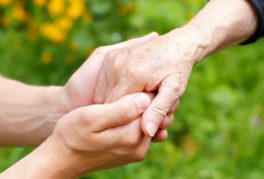
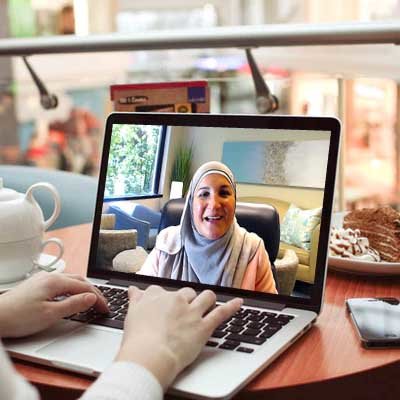
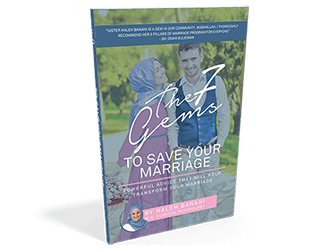
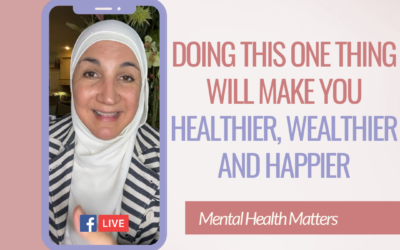
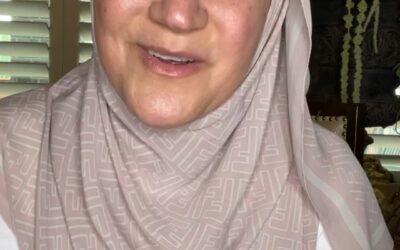
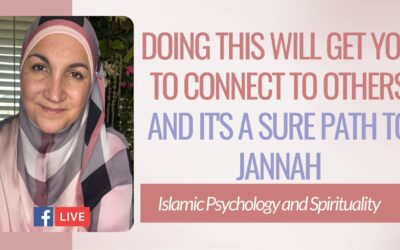
0 Comments